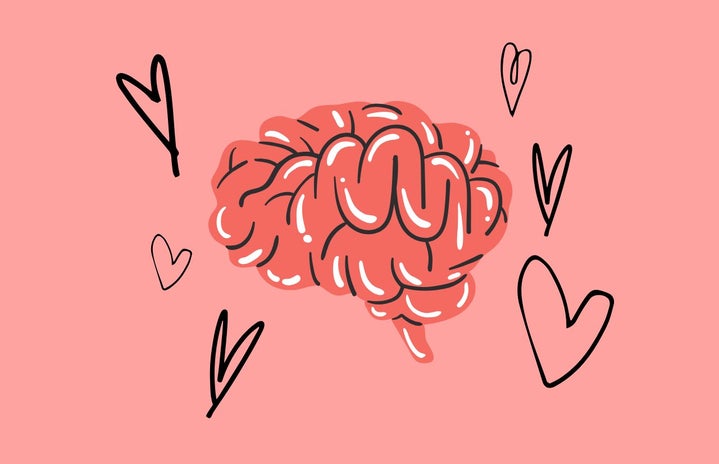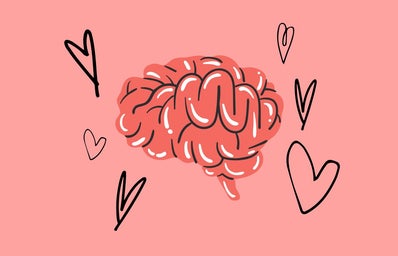Is love truly magical and animated, as Disney conditioned us to believe, or is it purely psycho-physiological? While it feels transcendent, research suggests it’s a complex interplay of brain chemistry. The “Triangular Theory of Love” by psychologist Robert Sternberg, proposes that various kinds of love can be categorized by the degree to which they possess intimacy, passion, and commitment. Romantic love is where intimacy and passion are prominent features. Romantic love is deemed by many an enchanting, all-consuming, and intrinsic force of human behavior.
Why You Should Care about Your Brain “on Love”
You might wonder why someone would want to “nerd-ify” a common human tendency. Well, for starters, it’s not insignificant for a person’s mental health. People in romantic relationships go through a myriad of emotions, especially adolescents experiencing it for the first time. Physiological changes exist as a result of the psychological and emotional changes love brings, and in some cases, these changes can be quite extreme. Emotions can take over and consume individuals, putting them in vulnerable positions, which is often a reason people shy away from serious commitment.
The Queensland Brain Institute states that understanding the neuroscience behind your behavior is important for self-awareness and improvement; having better control over your own emotions can drastically improve the quality of your life. A stronger grasp of what you feel, being able to articulate those feelings, and approaching relationships in a healthy way for yourself and your partner requires self-introspection. “Kinnu’s Guide to Emotional Biohacking” explains that hacking your emotions can help better regulate heightened emotions. When you know how your brain works, it can make this process easier and transparent in a way that demystifies how much love can affect you.
Overview of first spark to last tear
The journey of falling in love begins with the infatuation stage, in which you see your partner through rose-tinted glasses and with intense feelings of passion, as Dr. Paul W Eastwick explained. The brain is flooded with dopamine, a neurotransmitter linked to reward and pleasure. Research shows that the brain’s ventral tegmental area (VTA), the hub of reward processing and motivation, has increased activity, and the prefrontal cortex, responsible for high-level cognition and decision-making, has decreased activity. Fun fact: this region of the brain also activates when you abuse drugs, which sure puts things into perspective!
As the relationship matures, it moves into the attachment stage, marked by the release of oxytocin and vasopressin, hormones that foster trust and social support in romantic and platonic relationships. These chemicals are integral for deepening connections and building trust, as explained by Shannon Odell in a TED-Ed video titled “The science of falling in love.” During this phase, the initial euphoric feelings fade, and a clear view of the relationship emerges.
With time, romantic relationships reach a phase where partners may face conflicts and emotional challenges they work through or succumb to. Breakups can be truly wretched, and “heartbreak” isn’t just a metaphor. Ethan Kross of the University of Michigan’s Emotion & Self Control Lab says, “A social rejection hijacks the part of our brain that signals pain to say, ‘Hey, this is a really serious situation,’ because just like physical pain, the consequences could be there.” In his lab, a study was conducted in which researchers showed participants pictures of an ex-partner. Viewing the picture activated the same brain regions previously thought to be specific to the experience of physical pain. Interestingly, other emotions like anger don’t do that!
Love is, undeniably, a powerful force. From dopamine-fueled infatuations to deep bonds of attachment, love surely has the most interesting biological basis. Understanding your brain can help you map out why you or your loved ones feel so much for a partner. The thrill — the happily ever after — Disney conditioned us to believe could be true, but the neuro-psychology behind love is something to rely on.
Can’t get enough of HC UMass Amherst? Be sure to follow us on Instagram, listen to us on Spotify, like us on Facebook, and read our latest Tweets!




